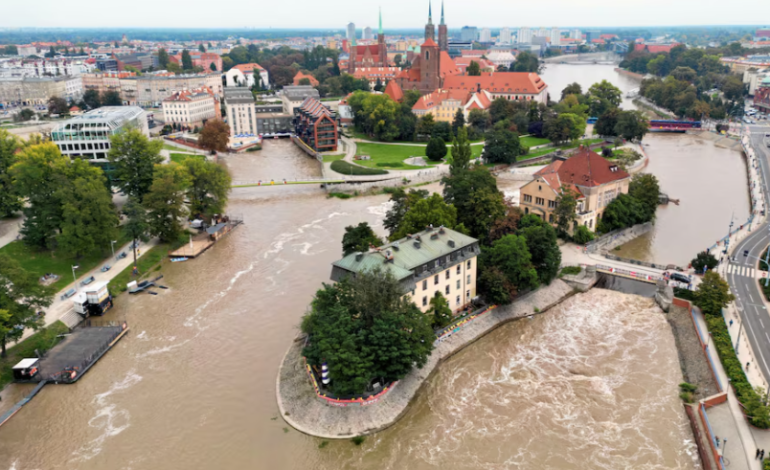Hundreds Evacuated as Storm Boris Devastates Northern Italy

Around 1,000 people were evacuated from their homes in northern Italy’s Emilia-Romagna region after severe floods and landslides caused by Storm Boris.
The storm, which had already left a trail of destruction across central and eastern Europe, has reignited criticism of the Italian government’s handling of the climate crisis.
The torrential rain in Emilia-Romagna, which had already experienced devastating floods in May 2023, forced the closure of schools and disrupted railway lines, while landslides blocked several roads. Firefighters carried out over 500 rescue operations, some involving helicopters, to save residents trapped by the rising waters. Despite the damage, no fatalities have been reported.
Michele De Pascale, mayor of Ravenna, one of the hardest-hit cities, described the situation as a “full emergency,” drawing parallels to the May 2023 flooding that killed 17 people and caused €8.5 billion in damage. Residents, many of whom are still recovering from the previous disaster, expressed frustration over the slow progress in building flood defenses.
“My home has once again been destroyed,” a resident of Faenza, a town in Ravenna province, said in a video.
They also criticized politicians for inaction.
The far-right government of Prime Minister Giorgia Meloni is under fire for its perceived lack of urgency in addressing the climate crisis. Opposition leader Angelo Bonelli urged Meloni to outline her government’s strategy, emphasizing that climate change poses a significant and growing threat. Meanwhile, members of Meloni’s Brothers of Italy party deflected blame, claiming local authorities in Emilia-Romagna had mismanaged funds meant for flood defenses.
Storm Boris, which has killed at least 24 people across Europe, continues to wreak havoc, particularly in neighboring regions like Marche. The situation has renewed calls for stronger climate adaptation measures as Italy remains one of Europe’s most vulnerable regions to extreme weather events, which scientists link to climate change.
With input from BBC, Reuters, the Guardian, and ABC News.









The latest news in your social feeds
Subscribe to our social media platforms to stay tuned